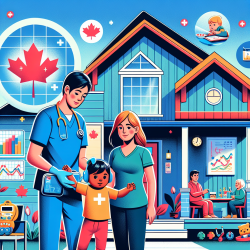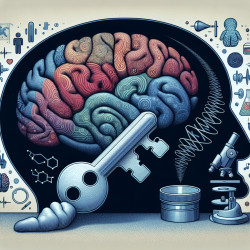As practitioners in the field of online therapy, especially within the realm of special education, we are always on the lookout for innovative ways to improve our skills and provide the best possible service to our students. One often overlooked but highly valuable area of study is global health diplomacy (GHD). A recent systematic review titled "Politics of disease control in Africa and the critical role of global health diplomacy: A systematic review" sheds light on this subject and offers insights that can be adapted to our practices.
Here are some key takeaways from the research and how you can implement them to enhance your online therapy services:
The Importance of Collaborative Partnerships
The research highlights the need for cooperative partnerships to navigate the complex politics of disease control. Similarly, in online therapy, building strong partnerships with schools, parents, and other stakeholders can significantly improve the effectiveness of your interventions. Collaborative efforts ensure that everyone is on the same page and working towards a common goal.
Prioritizing Health in Development Agendas
Just as the African Union is encouraged to prioritize health in its development agendas, we should prioritize the well-being of our students in our therapy plans. This means not only focusing on immediate therapeutic goals but also considering the long-term health and development of the students. Regular assessments and adjustments to therapy plans can help achieve this.
Training and Capacity Building
The research emphasizes the importance of training health officials in the craft of diplomacy. For online therapists, continuous professional development is crucial. Attending workshops, webinars, and training sessions can help you stay updated with the latest techniques and tools in online therapy, thereby improving your service delivery.
Addressing Broader Issues
One of the key points from the research is the need to address broader human security issues driven by factors like climate change. In the context of online therapy, this can translate to being aware of and addressing the various external factors that might affect a student's ability to participate in and benefit from therapy. This could include socioeconomic factors, family dynamics, and even the digital divide.
Resource Mobilization
The research suggests that mobilizing resources and capacities is essential for effective disease control. Similarly, ensuring that you have the necessary resources—whether it's the latest software, adequate training, or support from school administrators—can make a significant difference in the quality of your online therapy sessions.
By implementing these insights from global health diplomacy into your practice, you can enhance your skills and provide better support to your students. For those interested in delving deeper into the research, it is highly recommended to read the original paper.
To read the original research paper, please follow this link: Politics of disease control in Africa and the critical role of global health diplomacy: A systematic review.










